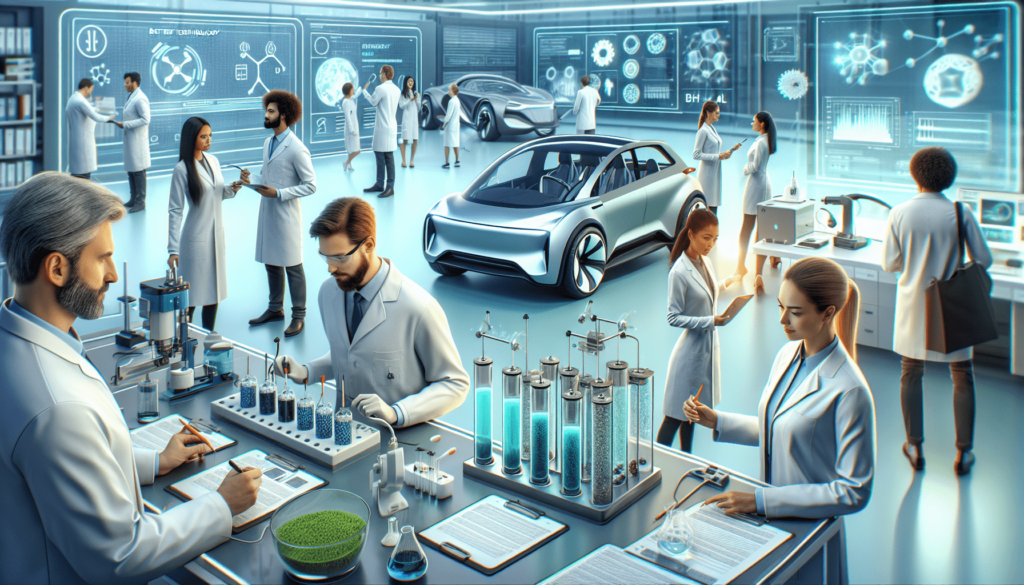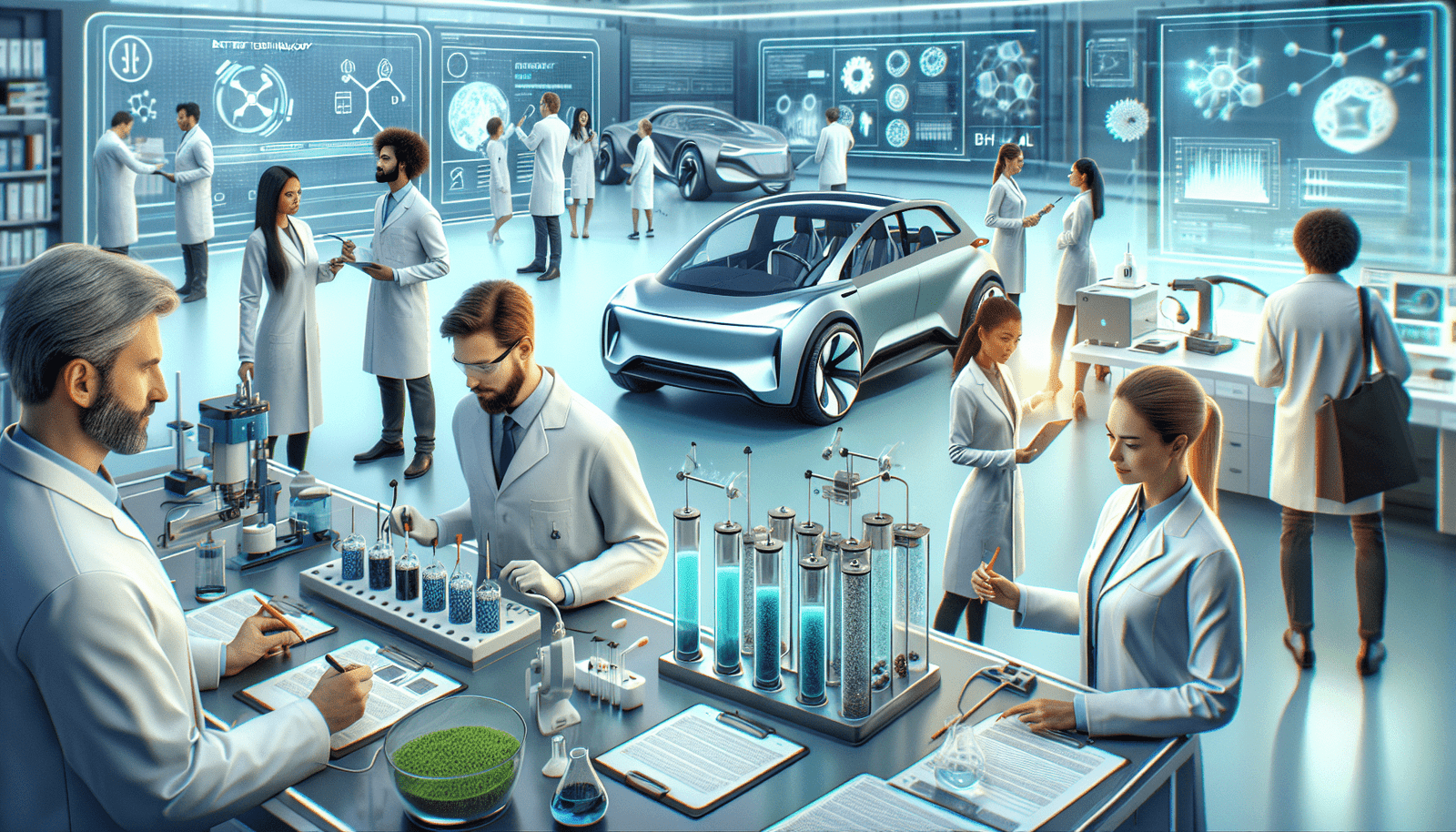Are you curious about the latest advancements in electric vehicle batteries? Well, you’re in luck because this article explores the exciting realm of innovative materials being developed for these batteries. With the growing demand for electric vehicles, scientists and engineers are constantly seeking ways to make these batteries more efficient, durable, and environmentally friendly. So, buckle up and get ready to discover the groundbreaking materials that could potentially revolutionize the world of electric vehicles.
Introduction to Electric Vehicle Batteries
Electric vehicle batteries play a crucial role in the success of the electric vehicle (EV) industry. As the demand for EVs continues to rise, it is important to explore innovative materials that can improve the performance and efficiency of these batteries. In this article, we will discuss the current state of EV batteries, the need for innovative materials, recent advancements in battery technology, and the potential impact of these materials on the future of electric vehicles.
Current State of Electric Vehicle Batteries
Currently, most electric vehicles are powered by lithium-ion batteries, which have become the industry standard due to their high energy density and longer lifespan compared to other battery technologies. However, there are still limitations that need to be addressed, such as cost, charging time, and the reliance on rare materials like cobalt.

Need for Innovative Materials
With the increasing demand for electric vehicles and the desire for improved battery performance, there is a critical need for innovative materials that can address the limitations of current battery technologies. These materials should be able to enhance energy density, reduce charging time, improve safety, and lower costs.
Research and Development
In order to find new materials for electric vehicle batteries, extensive research and development efforts are underway. Both academia and industry are actively collaborating to discover and develop materials that can revolutionize battery technology. These collaborations allow for the exchange of knowledge, resources, and expertise, accelerating the progress of battery innovation.

Promising Innovations
Several promising innovations are emerging in the field of electric vehicle batteries. Advancements in lithium-ion batteries, such as the introduction of silicon anodes, are improving energy density and charging capabilities. Solid-state batteries, which use solid electrolytes instead of liquid ones, offer enhanced safety and increased energy density. Sodium-ion batteries are also being explored as a potential alternative to lithium-ion batteries due to their abundance and lower cost.
Graphene
Graphene, a two-dimensional material composed of carbon atoms, possesses remarkable properties that make it an ideal candidate for battery technology. Its high electrical conductivity, exceptional strength, and large surface area allow for faster charging, increased energy storage, and longer battery lifespan. Graphene has the potential to significantly improve the performance and efficiency of electric vehicle batteries.

Silicon
Silicon is another material that holds promise for electric vehicle batteries. It has a high energy density, which means it can store more energy compared to traditional graphite anodes. However, the expansion and contraction of silicon during charging and discharging cycles can lead to battery degradation. Efforts are being made to overcome this challenge through the development of silicon composites and nanostructured electrodes.
Lithium-Sulfur Batteries
Lithium-sulfur (Li-S) batteries are also gaining attention as a potential game-changer for electric vehicles. Li-S batteries have a theoretical energy density that is five times higher than that of traditional lithium-ion batteries, making them a lightweight and high-capacity option. However, challenges such as sulfur’s low electrical conductivity and the formation of polysulfides during cycling need to be addressed for commercialization.

Other Promising Materials
In addition to graphene, silicon, and lithium-sulfur batteries, other materials are also being explored for their potential application in improving electric vehicle batteries. Magnesium, for example, has high energy density and is more abundant than lithium, making it an attractive alternative. Graphite, a form of carbon, is being studied for its potential to enhance the energy density and cycle life of batteries. Metal-oxide nanocomposites are also being investigated as they offer improved energy storage capacity and stability.
Future Outlook
The development of innovative materials for electric vehicle batteries holds great promise for the future of the electric vehicle industry. The integration of these materials into battery technology has the potential to revolutionize the way we think about and use electric vehicles. As research and development efforts continue to progress, we can expect to see significant improvements in battery performance, reliability, and cost-effectiveness. This will be instrumental in driving the commercialization and mass adoption of electric vehicles worldwide.
In conclusion, the electric vehicle industry is at the forefront of technological innovation, and battery technology plays a vital role in its growth and sustainability. The need for innovative materials that can enhance the performance, efficiency, and affordability of electric vehicle batteries has never been greater. As researchers, scientists, and industry experts continue to collaborate and explore new possibilities, the future looks bright for electric vehicles and the materials that power them.


